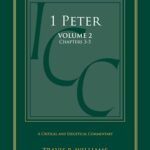What Do We Want? MORE POWER! When Do We Want It? NOW!
The NT Scriptures frequently mention the Christian’s need for “power” or “strength” from God to obey him, endure persecution, and bear witness for him (Phil 4:13; Col 1:11; 1 Pet 4:11; etc.). This is the case not primarily because of our finitude, but because of our spiritual deficiencies. All persons are born under the crippling power of sin and cannot escape it apart from the miraculous, regenerating power of the Christian Gospel. But even afterward, we are beset by the dregs of indwelling sin that weigh us down and render us incapable, at times, of doing the spiritual tasks God gives to us. We need spiritual stamina to overcome these deficiencies. But what, exactly, should we expect when we ask God for strength or power?
Since the late 19th century (and corresponding, tellingly, to the rise of Keswick and Pentecostal theologies), the expectation has been one of unexpected surges of spiritual power from without to supernaturally overcome the believer’s inveterate deficiencies. As if often the case, this expectation was captured in the church’s hymnody:
- “Send the old-time power, the Pentecostal power.”
- We are “channels only” who possess “no power, but as thou givest with each command.”
- We “need power to obey thy word and follow close to thee.”
The implication of these song texts is that (1) we should expect today the kinds power experienced by the apostles when God’s Spirit came upon them to perform miracles and to speak with authority that exceeds “normal” preaching; and/or that (2) we must let go and let God do through us, by proxy, powerful things that mere mortals cannot do, assisting him only by “getting out of his way.”
The Scriptures, I believe, are more inclined to see the power of Christ coming not from without, but from within the believer. Having been united with Christ, we have resident within us the potential energy to do all that he commands. What we should desire, then, is that we would be “strengthened in the inner man” (Eph 3:16), not suddenly and miraculously, but by the everyday appropriation of the ordinary means of grace—knowledge of the Scriptures, prayer, and the ministrations of grace found in the Christian assembly. By engaging in these activities over the course of time, we become “rooted and established” in him (v. 17) and, thus strengthened, are gradually enabled to speak and act more meaningfully for God—with a power that is not natively ours, but that is truly ours by virtue of our union with Christ. In short, we act in accord with a “power that is at work within us” (v. 20). [See also Paul’s prayer for the Colossians in Col 1:9–12.]
We may wish for sudden descents of the Spirit with great surges of miraculous power and homiletical anointing, but this is not God’s ordinary method for strengthening believers in the present age. Instead, spiritual strength accrues to the inner man in exactly the same way that physical strength accrues to the outer man—by faithfully engaging in spiritual diet and exercise, over the course of years, until we become spiritually strong enough for every good work required of us.



